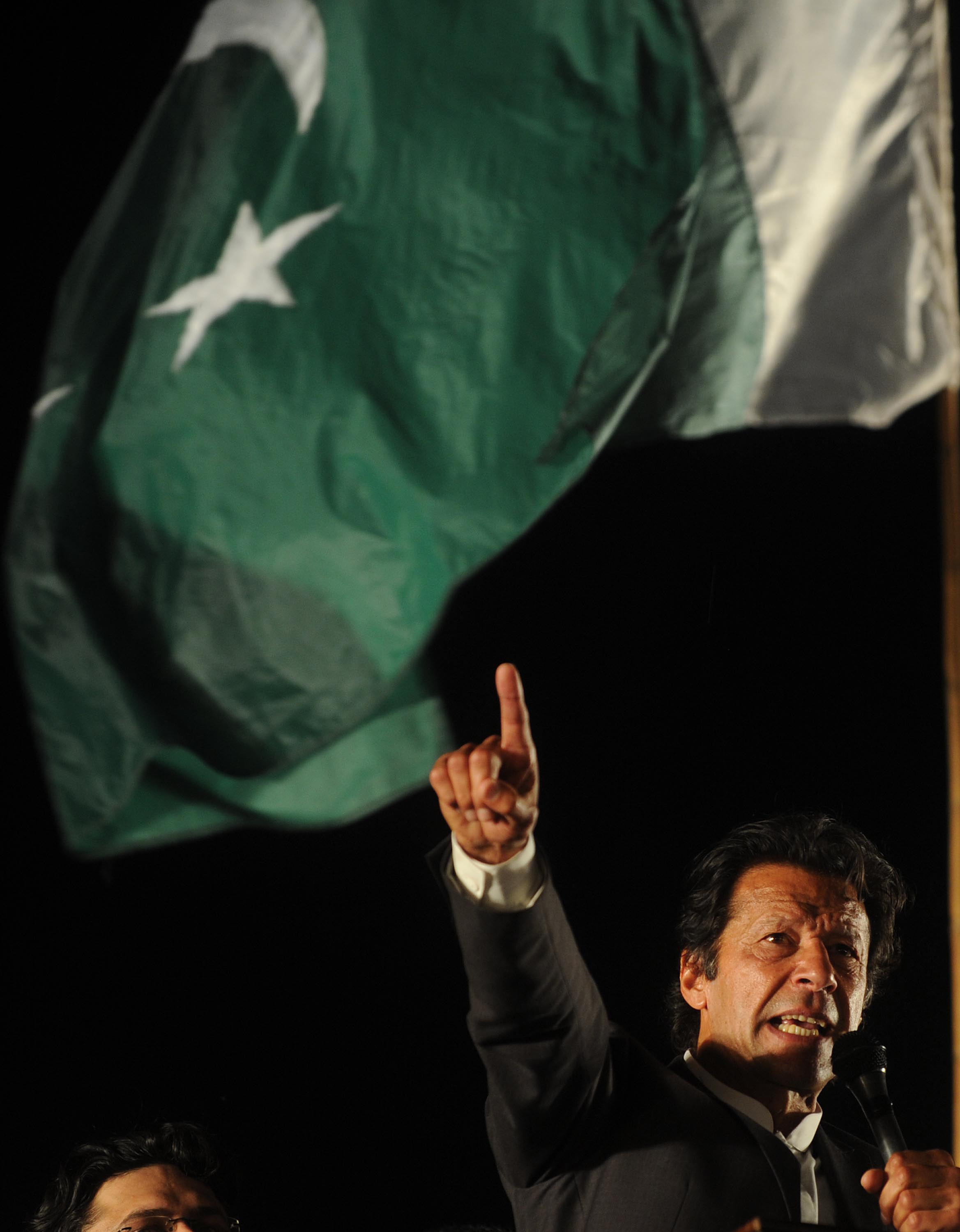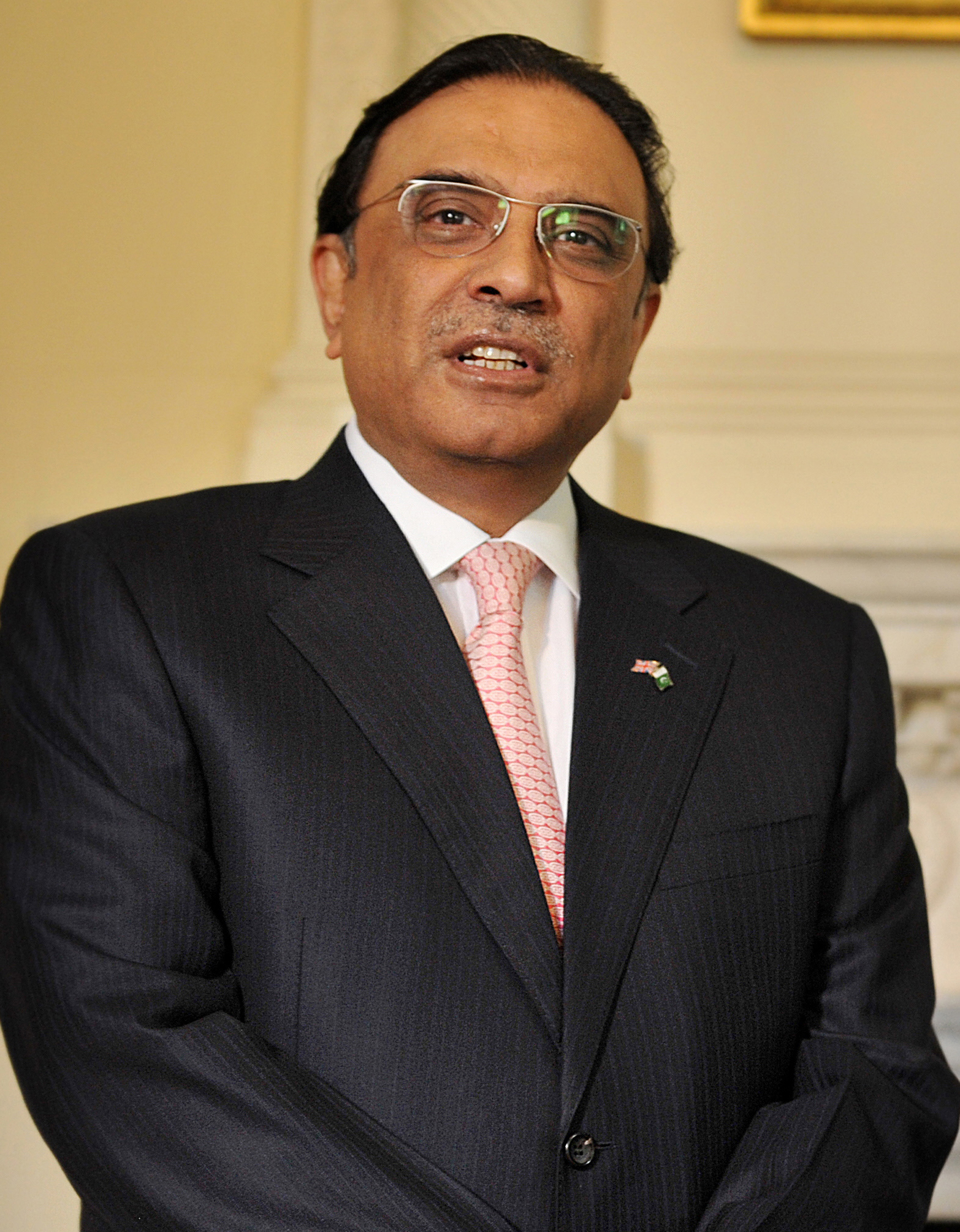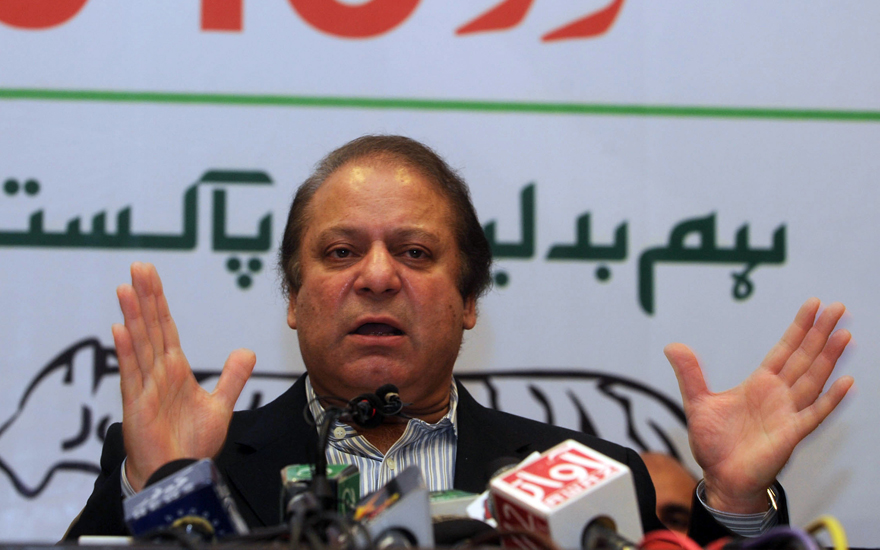The Man Who Would be King
By Syed Talat Hussain | Cover Story | Published 12 years ago
Incredible as it may seem, the first orders of the octogenarian interim prime minister, Mir Hazar Khan Khoso, concerning the holding of the elections took almost a week. Seven days and seven nights he spent in the luxurious Prime Minister house in the secure northern corner of Islamabad getting used to the idea of being the short-term but actual head of a nuclear armed state with the world’s eighth largest army. Such indulgence would be natural in a less challenging environment and on a job that does not involve running a country that is short on cash, long on violence and bustling with the expectation that May 11, the day of the election, will hopefully be a turning point in national history. Clearly, the federal government, that got its first cabinet members’ names out in print almost three weeks after Raja Pervaiz Ashraf’s farewell speech, has been slow on understanding the enormity of the task at hand. And even though now in place, the Mir Hazar Khan Khoso set-up is gearing up rather leisurely for their national duty.
But a totally different pictures emerges from the corner of political parties preparing for a formidable battle that might be decisive for the future of some of them. The most hyper among the lot happens to be the Pakistan Muslim League-N whose top leadership, high on the aspiration of winning the contest, is burning the midnight oil like they have never done before. Elaborate maps and data baselines that capture the profile of pretty much every neighbourhood of every constituency across the country inform debates on the best possible ways to cement their position. The samples done rely on groups as large as 6000 persons and give a detailed profile of the existing candidates’ approval ratings, chances of success, party vote bank position, top competitors’ advantages, voters’ preference of issues of major concern and alternative candidates and their respective positions. “For the first time we are basing our strategy on empirical evidence rather than on the whims of vested interests and groups. We are not going by the last victory or defeat of candidates, and nor are we bending over backwards in endorsing party pets unpopular with their own constituents,” says a top ranking PML-N source who sat in the study of former chief minister Shahbaz Sharif flashing map after map of constituencies.
“For the first time we are basing our strategy on empirical evidence rather than on the whims of vested interests and groups. We are not going by the last victory or defeat of candidates, and nor are we bending over backwards in endorsing party pets unpopular with their own constituents,” says a top ranking PML-N source.
This is the second survey. The first was done last year to gauge where the party stood on the matrix of public approval. The result of the first survey was shattering. “We discovered that even in heartland Punjab, Pakistan Tehreek-e-Insaf was at our heels and, in some cases, it was ahead of us, and even in at least two constituencies in Lahore. Our major stalwarts looked set to be overwhelmed by pro-PTI sentiment and some of them were seriously thinking of deserting the party and joining Imran Khan,” the source said candidly. This spike in PTI’s fortunes was created by the massive public gathering at Jinnah Park, Lahore that was particularly noticeable for the spontaneity of the participants and the natural fervour for Imran Khan.
 The party’s confidence comes from Imran Khan’s entrenched belief that Pakistan’s premiership is in his grasp. In his party meetings he speaks the language of a sure-shot winner, referring to “our cabinet,” “our foreign policy” and “our government” rather frequently. He is using the possibility of the “inevitable” even to negotiate deals within the party.
The party’s confidence comes from Imran Khan’s entrenched belief that Pakistan’s premiership is in his grasp. In his party meetings he speaks the language of a sure-shot winner, referring to “our cabinet,” “our foreign policy” and “our government” rather frequently. He is using the possibility of the “inevitable” even to negotiate deals within the party.
That day, says the source, the Sharifs decided to get serious about the coming elections. The response was an N classic: Mop up the political market of potential winners, and pump in development funds in neglected areas to such a scale that chronic grievances get drowned in the money supply. The turn-around in little under two quarters was remarkable. Surveys suggest that from 36 per cent average popularity rate, N jumped to 52 per cent, causing a proportionate loss to the PTI.
“We believe that we did not wean away PTI sympathisers, but instead those who were indecisive and did not see our party fly high enough, were made to make up their minds about our future,” says a triumphant Shahbaz Sharif, who also believes that he has secured Punjab with the largest chunk of seats in the National Assembly. “Imran Khan will be a distant second and the People’s Party, along with PML-Q, will be history,” he claims.
PTI’s camp laughs off these assessments. In Lahore, at a party meeting of the core group, members grin and grimace at the suggestion that their chances in the elections are not as bright as they tend to believe. “These people have another thing coming their way. I can tell you we are already looking at over 70 secure seats and we have not even started to campaign hard as yet,” says Jehangir Tareen, Imran’s right hand man who is deeply involved in party’s organisational matters.
The party’s confidence comes from some ground assessments which, they claim, have been done by seasoned politicians with decades-long experience in tracking political trends. Ishaq Khakwani, an old hand at politics from Vehari, South Punjab says that it was only during the days of Zulfikar Ali Bhutto that scenes were witnessed when ordinary people would walk up to political representatives and say they would vote for the PPP. “It is happening to PTI now. The new voter is already out therecharged with the desire to turn the tables on traditional politics,” says Khakwani.
This supreme confidence is inspired by Imran Khan’s entrenched belief that Pakistan’s premiership is in his grasp. In a gesture of boldness that would have surprised even Napolean Bonaparte, during a live television show he forecasted on a piece of paper that he would sweep the elections. In his party meetings, he speaks the language of a sure-shot winner referring to “our cabinet,” “our foreign policy” and “our government” rather frequently. He is using the possibility of the “inevitable,” even to negotiate deals within the party. When the list of reserved seats for women was announced and the name of Fauzia Kasuri, a diehard supporter of the party, popped up at number four behind the new entrant Ayla Malik and re-entrant Dr Shirin Mazari, Imran assuaged the angry Fauzia by saying, “What is the problem? Since we will sweep the election you all will get in to the assemblies anyway!” Fauzia was not convinced. She has since quietly withdrawn to the background, mourning the party’s “loss of principles” vis-Ã -vis near and dear ones.
And she is not the only one. PTI’s ticket distribution and selection of candidates — an impossible task in terms of keeping everyone happy — has been chaotic and, worse, dispiriting for the morale of dozens of die-hard local leaders. In the KP, the strongest support base of the PTI, the resentment over the method of party ticket selection and nominations has been mounting, fracturing loyalties and breaking old bonds. In every constituency there is a group that is angry and rebellious against the perceived wrong done in the process of selection.
Interestingly, the PML-N too faced similar situations in dozens of constituencies where they had gathered more candidates than the available seats. However, they were able to resolve the complex competition by offering a range of commitments on provincial seats, local bodies to be formed later through elections, a place in the Senate, reserved seats, advisory positions, by-elections and, of course, financial rewards for those who would stay within the fold despite being sidelined.
In the case of PTI, this near-scientific formula to lessen friction and resentment has not been used. Instead a ‘with-us-or-against-us’ open and shut situation is created for party members. This does not help in a field where opportunity and access to elected position is the key to survival. Nor does this square with the lofty ideas and ideals of “changed politics through new faces” that Imran Khan has been drumming in the heads of his workers. As one of his estranged party leader from Abbottabad put it, “Five people in a closed room decide to give tickets to old faces, and they say this is change? What has changed?” Yet hope springs eternal. PTI’s top brass sees a tidal wave of their victory swell and roll.
 With President Zardari still in the seat of power, and state and private money being the keystone of the strategy to stay alive, the PPP is banking on its Bhutto power to pull off a surprise. Sindh is its mainstay. “We are expending all our energies on securing our base,” says a close aide of President Zardari. “Punjab is our next priority and even there it is the South of Punjab; then comes the KP and Balochistan.”
With President Zardari still in the seat of power, and state and private money being the keystone of the strategy to stay alive, the PPP is banking on its Bhutto power to pull off a surprise. Sindh is its mainstay. “We are expending all our energies on securing our base,” says a close aide of President Zardari. “Punjab is our next priority and even there it is the South of Punjab; then comes the KP and Balochistan.”
Markedly different is the feel in the camp of the People’s Party and their allies, the PML-Q. The Q leadership has seen its fortunes shrink and its party cadres getting emptied. The Sharifs may be the old broom, but they have certainly swept the Q courtyard clean. Apart from desertions, the alliance patterns too are going against the Chaudharies of Gujrat, who normally are pretty good at the politics of give and take. The Sharifs have worked out limited but useful seat adjustments with the Jamiat Ulema Islam (Fazlur Rehman) in KP and parts of interior Sindh, where it is ably assisted by Sindhi nationalists. In Punjab’s urban areas, the Jamaat-e-Islami is a keen partner, willing to make adjustments and share the spoils of victory. In KP, a triangle of JUI, JI and PML-N is shaping up, whereas in Balochistan, old Leaguers are being woven into a collage of nationalists and conservatives. That leaves no space for the Q League to flex its atrophied muscles. Its marginalisation is truly spectacular. The People’s Party is still a worthy player in the fray. With President Zardari still in the seat of power, and state and private money being the keystone of the strategy to stay alive, the PPP is banking on its Bhutto power to pull off a surprise. Sindh is its mainstay. “We are expending all our energies on securing our base,” says a close aide of President Zardari, who also handles most of the work of the informal political cell in the presidency that works day and night to ensure support for the slightly weaker candidates in Sindh. “Punjab is our next priority and even there it is the South of Punjab; then comes the KP and Balochistan,” explains the aide.
No wonder the news from KP is hopeless for the PPP. “We will be number four I can tell you right now,” says a senior party member. “Our candidates are strong but the party popularity has sunk to a new low. On top of it we cannot cannot even campaign properly due to threats from the Taliban,” he adds.
“This is pre-poll rigging. The dice is heavily loaded against us. If we are not secure and if our lives are in danger, how can we generate momentum or get our voters to come out and vote for us?” says Asma Arbab Alamgir, whose husband Arbab Alamgir is contesting from a constituency in Peshawar that borders the violence-infested Khyber Agency. She almost makes a case for postponing the elections by saying, “People’s lives come first. Elections come later. Should we have elections by risking people’s lives?”
The PPP is slightly more hopeful in Punjab, although the internal analysis of the party’s stalwarts suggest deep reductions in the traditional vote bank. “The problem is that the last five years have been an enormous drain on our image. Gas, electricity and law and order issues have created an impression of failure that the voter does not want to take a chance on. Even our candidates are telling us that they would rather contest as independents than as party ticket holders because they stand a better chance of making it on their own,” says a Punjab-based party frontline leader. This is candid admission. More than that it is a reflection of where the PPP stands today after five years in power — divine justice for a party that took official propaganda for fact and dismissed its detractors as useless naysayers.
The writer is former executive editor of The News and a senior journalist with Geo TV hosting a prime time current affairs program.




